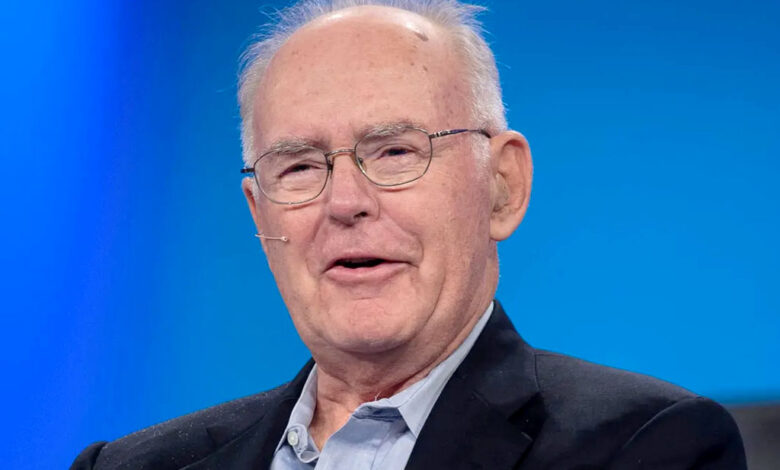Gordon Moore, co-founder of Intel and visionary behind the growth of personal computing, passes away at 94

Intel co-founder Gordon Moore has passed away at the age of 94, leaving behind a legacy as a pioneer of the semiconductor industry. Moore’s “Moore’s Law” predicted that computing power would steadily rise for decades, as the number of transistors on microchips doubled roughly every year since the integrated circuit’s invention. Moore’s prediction that the trend would continue helped push Intel and rival chipmakers to aggressively target their research and development resources to make it a reality. Chips became more efficient and less expensive at an exponential rate, leading to technological progress and the advent of personal computers, the internet, and Silicon Valley giants like Apple, Facebook, and Google. While some argue that Moore’s Law no longer holds, current Intel CEO Pat Gelsinger believes it still does as the company invests billions in a turnaround effort.
Moore earned a Ph.D. in chemistry and physics in 1954 from the California Institute of Technology, where he met Robert Noyce, his future co-founder at Intel. They left the Shockley Semiconductor Laboratory in 1957 to launch Fairchild Semiconductor, where Moore rolled up his sleeves and spent countless hours refining Noyce’s ideas, efforts that often paid off. In 1968, Moore and Noyce left Fairchild to start Intel, an abbreviation of Integrated Electronics, and hired Andy Grove, who would lead Intel through much of its explosive growth in the 1980s and 1990s. Under Moore’s and Noyce’s leadership, Intel invented the microprocessors that opened the way to the personal computer revolution.
Moore, who Forbes estimated had a net worth of $7.2 billion, was also a longtime sport fisherman who started a foundation with his wife in 2000 focused on environmental causes. The foundation, funded by Moore’s donation of some $5 billion in Intel stock, took on projects such as protecting the Amazon River basin and salmon streams in the United States, Canada, and Russia. He also gave hundreds of millions to his alma mater, the California Institute of Technology, and backed the Search for Extraterrestrial Intelligence project known as SETI. Moore received a Medal of Freedom, the nation’s highest civilian honor, from President George W. Bush in 2002.





